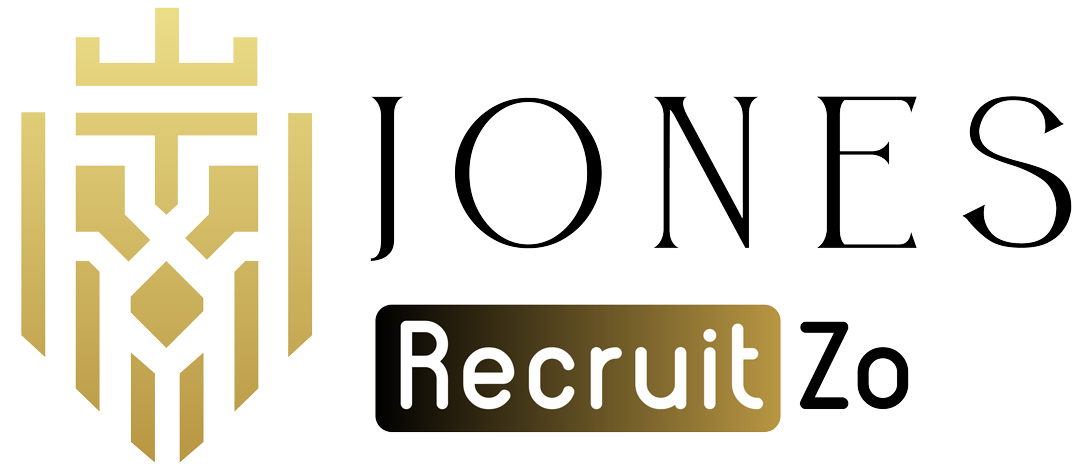What is Employer Branding?
Employer branding describes what a company is like for present and future employees. It includes the company’s core beliefs, its organisational culture, the environment in which the employees work, as well as the general impression of the company as one which respects its employees. In other words, the meaning of Employer Branding is how you frame and position your organisation in the minds of business-qualified individuals and employers in the talent market.
A potent Employer Branding Strategy aims to present the organisation as the employer of choice and to do so with a relevant Employee Value Proposition (EVP) that addresses the aspirations and requirements of top talent.
Why is Employer Branding Important?
The importance of this concept is that it enables companies to draw in and retain the highest-quality people within the organisation and also within the industry in general. It has a direct effect on hiring, people management, and the success of the business as a whole.
This provides employer branding strategy examples and ensures employees are on board with the company’s vision, which fosters loyalty and increases output. Not only does this reduce staff turnover, but it also boosts the morale of the workforce and the productivity of organisations.
Employer Branding Strategy

A strong strategy for promoting the image of the present-day employer is indispensable for the formation of positive and enduring impressions for its employees as well as candidates. It makes it possible to articulate the company’s principles, environment, and perks efficiently, resulting in the hiring and retaining of the best talents in the organisation. Further, proper implementation of a strategy eliminates the disparity between the internal culture of the organisation as well its employer image, thus enhancing the credibility of the employer brand. This consistency builds trust and engagement which are necessary for sustained success.
-
Employee Value Proposition
The term Employee Value Proposition (EVP) refers to what a company or organisation provides, in terms of Employee benefits, culture, and opportunities, to its employees. A well-researched Employee Value Proposition is the most important included element of any Employer Branding Strategy. It answers the question of “why it is better to work with this company instead of any other” and keeps the consistency between employee’s values and the company’s goal. A strong EVP positions the company in the market, and it helps in finding the right candidates who can fit the company’s cultural expectations.
-
Audit Employer Brand
A decent employer brand audit will allow the discovery of employer brand equity or its absence and will give an understanding of the current state of affairs in the organisation. It will also make it possible to update the existing Employer Branding Strategy. Allows to measure employee satisfaction, look at managers and external views, and evaluate the brand in general. Gives the information that can be acted upon so that the employer brand is credible and appealing to both potential and existing employees.
-
Promote your Employer Brand
An employer value proposition strategy entails promoting your company’s reputation as an employer to the outside world. Social networking sites, career pages as well as stories of employees can help a great deal. Creating and sharing positive feelings about the workplace and employee reviews is a face of the brand that helps in building a bond. Keeping communication clear and regular helps in ensuring that the person trying to get employment in the institution and the general public hold the brand values.
-
Measure your Branding success
The strategies for the promotion of any employer branding as part of the marketing activities should also take the form of evaluation. Evaluations can be based on instruments such as surveys, analytics, or even feedback mechanisms. Routine measurements help in recognising the weak spots and making the necessary strategy modifications. Those metrics allow the Organisation to continuously enhance the Employer Branding Strategy, transpose the efforts into better endorsements, and shape over time.
-
Monitor Candidate Quality
Assessing the quality of candidates entering your organisation is also a strategic measure against the deteriorating effectiveness of the Employer Branding Strategy. The more high caliber the applicants tend to be, the more the employer’s brand is appealing and credible. If someone is regularly checking applicants qualifications and how those weigh against the mission of the organisation, then it means the right applicants’ are being pulled in. This allows you to update your employer brand for the best candidates possible.
Performance Indicators for Employee Branding
Measuring specific metrics provides a clear picture of how well your Employer’s Branding efforts are performing. These indicators offer tangible data that helps assess the effectiveness of your branding strategy, enabling organisations to adjust their approach as needed. Tracking performance metrics allows for continuous improvement, ensuring that the company is attracting, engaging, and retaining top talent.
-
Employee Retention Rate
Retention rates indicate how effectively your employer brand fosters loyalty and satisfaction among employees. A high retention rate signifies that employees are not only content in their roles but also feel a strong connection to the company’s values and culture. When employees remain with the company for the long term, it reduces recruitment and training costs, which significantly benefits the bottom line. Regularly monitoring retention rates helps identify potential areas of dissatisfaction before they lead to turnover.
-
Quality of Job Applicants
The quality of job applicants reflects the attractiveness of your employer brand in the talent market. High-quality applicants are often a direct result of a strong and positive employer brand, as candidates are drawn to organisations known for their values, work culture, and development opportunities. The more aligned your applicants are with the company’s needs, the greater the potential for long-term success and cultural fit. By assessing the quality of applicants, organisations can refine their branding efforts to attract even more suitable candidates.
-
Employee Referrals
A rise in employee referrals is a clear sign of satisfaction and trust in the organisation’s brand. When employees recommend candidates to the company, it indicates that they are not only pleased with their own experiences but also feel confident enough to suggest it to others. Referrals typically result in higher-quality hires who align better with the company culture and have a greater likelihood of succeeding within the organisation. Monitoring referral rates can provide valuable insights into the strength of your employer brand and the level of employee engagement.
-
Employee Satisfaction Surveys
Survey results offer direct insights into employee morale, engagement, and overall satisfaction with the workplace. These surveys enable organisations to collect feedback on crucial areas such as company culture, management effectiveness, benefits, and opportunities for career development. By regularly conducting satisfaction surveys, organisations can pinpoint emerging issues or areas where employees may feel disconnected. The feedback gathered from these surveys can be utilized to enhance your Employer Branding Strategy and improve the overall employee experience.
Benefits of having a Strong Employer Brand

A strong employer brand goes beyond just reputation; it is a vital asset that influences an organization’s ability to attract, retain, and engage the right talent. Companies that cultivate a positive employer brand enjoy numerous advantages, including a steady stream of high-quality job applications, enhanced employee satisfaction, and reduced recruitment costs. In today’s competitive job market, a well-articulated employer brand provides companies with the necessary edge to be recognised as employers of choice. Here are some key benefits of maintaining a strong employer brand:
-
Get Job Application
A robust employer brand guarantees a consistent flow of applications from prospective candidates. When individuals view an organisation as an excellent workplace, they are more inclined to apply, even if there are no current openings. A favorable employer brand fosters trust and draws in candidates who resonate with the company’s values, leading to a higher volume of qualified applications. This not only expedites the filling of job vacancies but also brings in a more diverse talent pool.
-
Reduce Time to Hire
With a solid reputation, the hiring process becomes quicker and more streamlined, leading to a reduction in overall time-to-hire. When potential candidates are already aware of the company’s values and culture, they are more likely to submit applications, which accelerates the recruitment cycle. A strong employer brand ensures that candidates are pre-qualified in terms of cultural fit, minimizing the number of interviews and screening processes. This enables HR teams to make faster decisions and concentrate on top candidates, ultimately lowering hiring costs and time.
-
Attract Top Talent
A clear Employer Branding Strategy draws in highly skilled professionals who want to connect with the company’s values. Top talent is often attracted to organisations recognised for their culture, work-life balance, and opportunities for career growth. A robust employer brand serves as a magnet for these candidates, who seek employers that resonate with their personal and professional aspirations. With a strong and positive brand, organisations can appeal to candidates who are not only qualified but also genuinely enthusiastic about the company’s mission and vision.
-
Employee Satisfaction
Employees tend to be more satisfied and engaged in organisations that maintain a strong and consistent employer brand. When an organisation’s values and workplace culture align with what employees expect, it creates a sense of belonging and purpose. A solid employer brand sets clear expectations and provides consistent experiences for employees, which directly enhances morale and productivity. Content employees are more likely to remain with the company for the long haul, resulting in lower turnover rates and a more engaged workforce.
-
Reduce Recruitment Costs
A strong employer brand minimizes the need for paid advertising and recruitment agencies, thereby reducing overall hiring expenses. Companies with a good reputation naturally attract candidates through word-of-mouth, referrals, and inbound job applications. This decreases the necessity for costly recruitment campaigns or dependence on third-party agencies. By focusing on Employer Branding initiatives, organisations can cultivate a reputation that draws in top talent without incurring additional costs, making the recruitment process more efficient.
FAQs
1) What is Employer Branding?
Employer Branding is the perception and reputation an organisation olds as an employer. It includes the company’s values, culture, benefits, and work environment, all of which shape how current and prospective employees view it. A robust employer brand is essential for attracting the right talent and nurturing employee loyalty by effectively conveying what the company represents and what it offers its workforce.
2) Why is Employer Branding Important?
Employer Branding is vital because it enables organisations to draw in and keep top talent in a competitive job market. A strong brand reputation enhances employee satisfaction, increases retention rates, and improves overall business performance. By cultivating a positive image of the company, Employer Branding ensures that employees and candidates resonate with the organisation’s values and culture, leading to greater engagement and productivity.
3) What is an Employer Branding Strategy?
An Employer Branding Strategy is a plan designed to promote and strengthen an organisation’s reputation as an employer of choice. It involves shaping how the company is perceived by current and potential employees through clear communication of its culture, values, and benefits. The strategy includes creating a compelling Employee Value Proposition (EVP), promoting the brand externally, measuring success, and continuously improving to align with the company’s goals and values.
4) What are the benefits of Employer Branding?
The benefits of Employer Branding include attracting a steady stream of qualified job applicants, reducing time-to-hire, and lowering recruitment costs. A strong employer brand also helps attract top talent by differentiating the company in the job market. Additionally, it enhances employee satisfaction and engagement, leading to higher retention rates and a more productive workforce. Overall, a strong employer brand contributes to both short-term recruitment success and long-term organisational growth.







